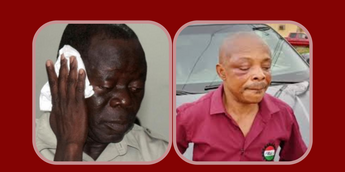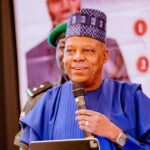The historical backdrop of work activism in Nigeria is a story of strength, fortitude, and the immovable quest for laborers’ privileges against different military and regular citizen systems.
Over time, heads of the Nigeria Work Congress (NLC) and Worker’s organization Congress (TUC) have been exposed to confinement and detainment by the public authority, mirroring a repetitive example of endeavors to smother disagree and stifle the voices of those upholding for the government assistance of standard Nigerian
Haroun Adamu, the NLC President at that point, and Wahab Folawiyo, the TUC President, were captured and confined in 1975 following a cross country strike called by the associations in challenge the financial strategies of the tactical government drove by Broad Murtala Mohammed. The strike was especially focused on the public authority’s choice to increment fuel costs, which had caused far and wide financial difficulty among conventional Nigerians.
Adamu and Folawiyo were blamed for impelling brutality and upsetting public request during the strike. They were kept for a considerable length of time prior to being delivered without charge.
In 1984, under the tactical rule of General Muhammadu Buhari, NLC President Ali Hassan Sunmonu and TUC President Festus Iyayi were captured and confined following a general strike brought in challenge the public authority’s starkness measures, which included wage freezes and slices to public administrations. The hit was met with a brutal crackdown by the specialists, and Sunmonu and Iyayi were among the many work pioneers who were focused on for detainment.
Sunmonu and Iyayi were held without charge for a considerable length of time prior to being delivered under massive global tension.
In 1994, during the tactical system of General Sani Abacha, NLC President Pascal Bafyau was captured and confined following a progression of fights against the public authority’s financial strategies, which included fuel cost increments and a downgrading of the naira. These actions caused far reaching difficulty among conventional Nigerians, and the fights were met with a severe crackdown by the Abacha system.
Bafforne was held without charge for quite some time prior to being delivered under global tension.
Once more in 1998, under the proceeded with military rule of General Abdulsalami Abubakar, Bafyau and TUC Umoh were captured and kept, this time following a strike brought in challenge the public authority’s arrangements to raise the lowest pay permitted by law. The public authority contended that the compensation increment would prompt employment misfortunes, however the NLC and TUC kept up with that counterbalancing the increasing cost for most everyday items was essential.
Bafyau and Umoh were held without charge for quite some time prior to being let under tension out of global work associations.
In 2004, during the regular citizen administration of Olusegun Obasanjo, NLC President Adams Oshiomhole was captured and kept following a cross country strike brought in challenge the public authority’s arrangements to increment fuel costs. The hit was met with a ponderous reaction from the specialists, and Oshiomhole was among the many work pioneers who were focused on for confinement.
Oshiomhole was held without charge for a few days prior to being let under tension out of global associations and common society gatherings.
These are only a few instances of the multiple occasions that NLC and TUC pioneers have been confined or detained in Nigeria. These detainments have been completed by both military and regular citizen states, and they mirror the long history of restraint that work activists have looked in Nigeria






